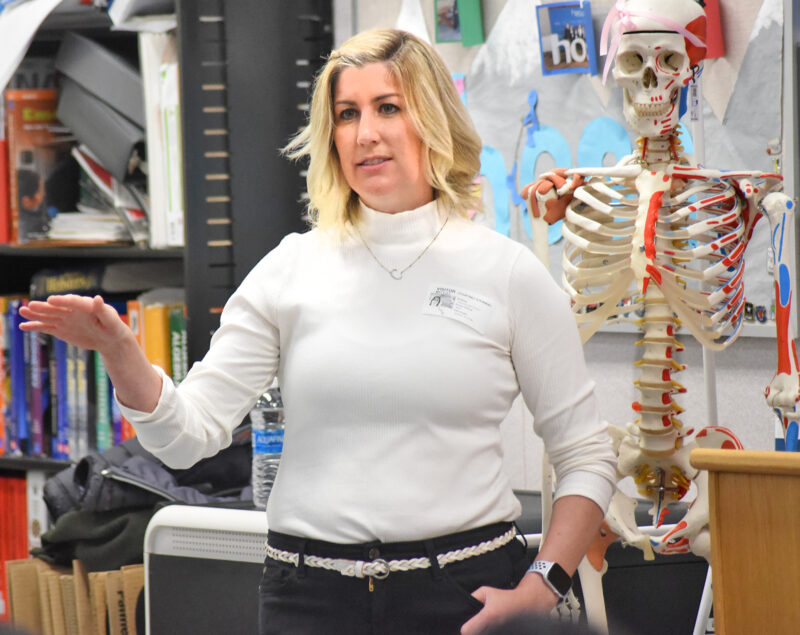In an effort to educate, and not scare, Dr. Courtney Mattley and Dr. Ohannes Kandilian from Henry Mayo Newhall Hospital held a presentation on opioids and Narcan use to several Valencia High School classes on Wednesday.
“My goal is to help you guys understand the science behind these medications,” said Mattley.
Mattley opened the presentation by describing the differences among opium, opiates and opioids.

Opium is a derivative from the poppy seed, opiates are naturally occurring and opioids are semi-synthetic or synthetic.
“There are many types of opioids and I hope you can appreciate the differences between them,” said Kandilian.
Working as a pharmacy manager, Mattley is used to seeing and prescribing these as needed. However, with the rise of them on the streets, some may forget the benefits that they have in the hospital.

As Mattley described, opioids are used to reduce and relieve pain, may create a sense of euphoria and are highly habit-forming and addictive.
With the rise of opioid addictions and overdoses, Mattley provided the students with the knowledge that they need to potentially save lives.
The symptoms of an opioid overdose can be respiratory depression, non-responsiveness, slipping into a coma, pinpoint pupils, low blood pressure, slow heartbeat and flaccid muscles.

Mattley handed out empty Narcan dispensers to students to follow along with Kandilian’s demonstration on how to administer Narcan.
Narcan, the commonly known brand name for naloxone HCI, is available over the counter as a nasal spray.
Students passed around the Narcan test dispensers, pressing the plunger as Kandilian had instructed.
Mattley and Kandilian both acknowledged the rise in knowledge of Narcan in connection with the rise of fentanyl.
“We were worried about heroin and Vicodin for a while until 2016, and then it became fentanyl, just completely took over,” said Kandilian.

The rise in fentanyl has had many people scared of the opioid all together.
For patients in pain needing fast relief and something to not stay in their bodies for a long period of time, fentanyl may be prescribed for them.
“Fentanyl works faster,” said Mattley. “It’s also shorter acting compared to some other ones in the hospital.”
Mattley shared stories of patients refusing fentanyl out of fear.
Mattley and Kandilian both emphasized to the Valencia students in Joe Monteleone’s class that fentanyl is safe in the hospital, but not to be trusted outside of that.
“If you see fentanyl as a powder, you know it’s not created from some quality assurance place,” said Mattley.









